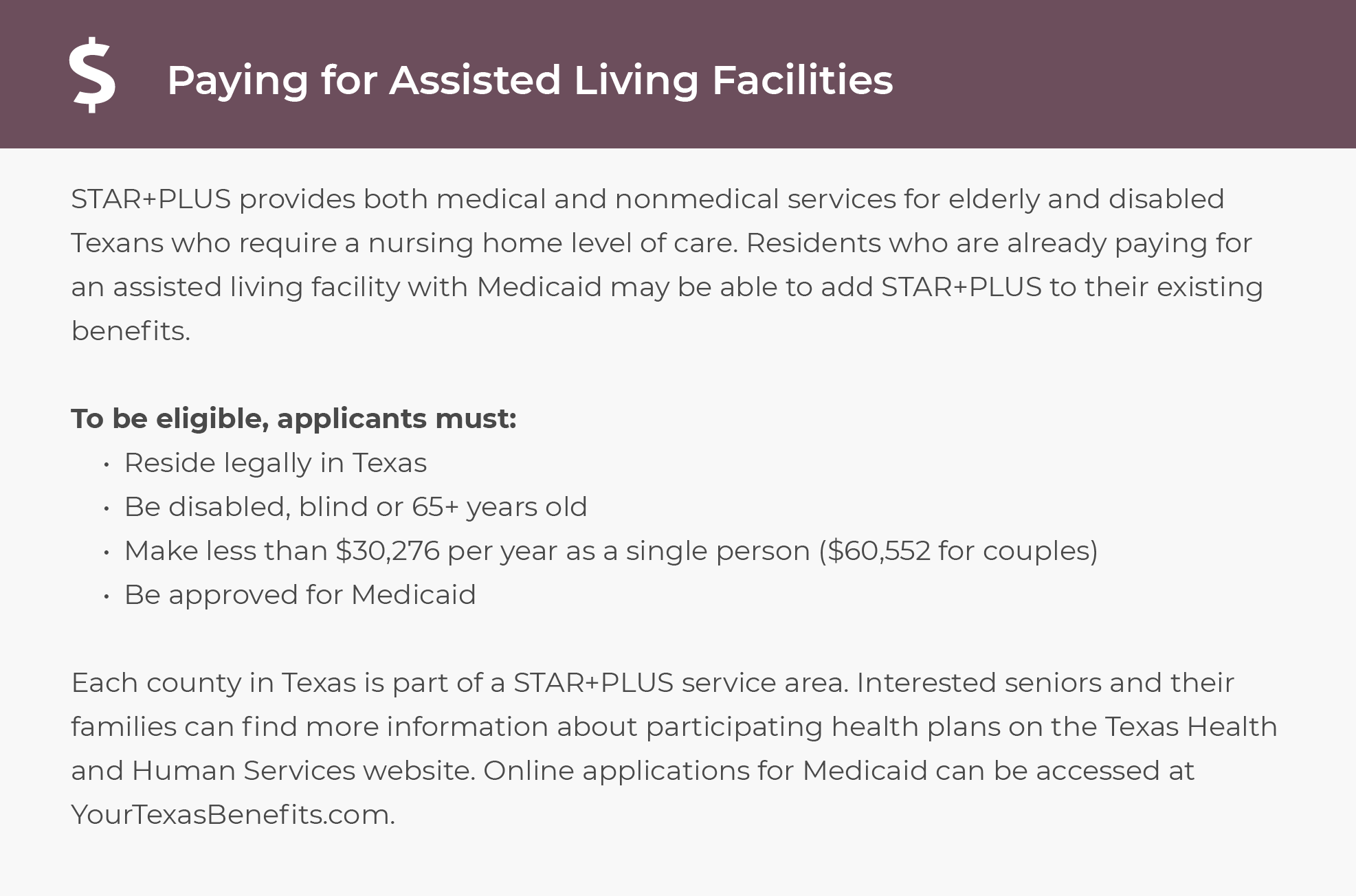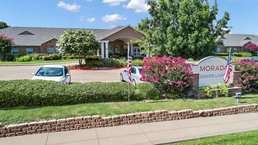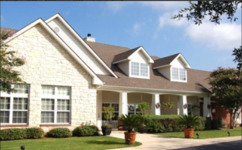Cedar Hill, Texas, is a smaller suburb of Dallas, located near Cedar Hill State Park and Joe Pool Lake. Dallas is home to several major sports franchises and has a diverse selection of shopping malls, boutiques, restaurants and concert venues. In addition, individuals who require specialty medical care have access to the world-class Baylor University Hospital and medical care system. Seniors on a budget may also appreciate the lack of state income tax in Texas, including on the income derived from retirement investments.
For seniors who wish to retain some independence but still have help available, assisted living accommodations may be ideal. These communities’ staff members aid residents with hygiene maintenance and medication management, among other needs. In Cedar Hill, according to Genworth’s 2021 Cost of Care Survey, the average assisted living facility charges $4,195 per month, a rate slightly above the Texas-wide average but below the typical nationwide rate.
This guide contains a comparison of assisted living costs, covering Cedar Hill and other areas seniors may consider. A summary of senior resources in Cedar Hill is the guide as well.
Hundreds of thousands of American seniors utilize assisted living, a figure that is only growing. For these seniors, assisted living combines residential housing,assistance in daily activities, and some healthcare. These communities also strive to provide an atmosphere that is comfortable and engaging for their residents… Read More >
COVID-19 restrictions and rules for Assisted Living Facilities are typically set by the state – to see the rules in your state, you can read our guide to Assisted Living in Texas. Keep in mind that there may be other policies that communities put in place to protect their residents, so you should contact your local community for more information. Additionally, you can contact your local Area Agency on Aging to learn more – find contact information here.
On average, assisted living residents in Cedar Hill pay $4,195 monthly.
Cedar Hill’s average assisted living fee of $4,195 is $197 higher than Texas’s average rate of $3,998. But compared to the average cost across the United States, Cedar Hill is $305 more affordable.
Tyler’s average assisted living cost is $3,863 which is lower than Cedar Hill’s. Compared to Cedar Hill, Sherman, Abilene and Wichita Falls are several hundred dollars more affordable, as their average rates are between $3,449 and $3,505. Two of the state’s most affordable cities for assisted living are Waco, which has an average cost of $2,800, and Texarkana, where the average cost is $2,770. Longview, however, is more expensive than Cedar Hill. There, assisted living facilities charge $4,275 on average.
Note: Data for Cedar Hill was unavailable, so data for the nearest city, Dallas, was used instead.

Since not everyone can afford to pay for assisted living out-of-pocket, it’s important to find alternative methods to help make assisted living more affordable. Some of these options include:
For more information about your options for making assisted living more affordable, visit our guide to Assisted Living in Texas.
| Contact | Description | |
| North Central Texas Area Agency on Aging Long-Term Care Ombudsman | (214) 823-5700 | Long-term care ombudsmen represent the interests of seniors in assisted living communities and other individuals in group home facilities. These services include investigation of complaints about abuse or neglect filed by the residents or by their loved ones. Other services include proposing stricter regulations for these communities and laws to protect residents. |
| Wellness Center For Older Adults | (972) 953-7669 | The Wellness Center is a community outreach service that addresses the health needs of older adults. It administers a loan program for durable medical equipment, such as TTY kits, toileting and shower chairs, and mobility aids such as wheelchairs and canes. The Center also hosts programs that address common health issues that affect the elderly, including advice about nutrition and meal preparation. |
| North Central Texas Area Agency on Aging (AAA) | (800) 272-3921 | The AAA runs several programs to help the elderly in the community including facilitating and running the operation of senior citizen centers and outreach services to help seniors access benefits from the state and local government. Another division of the Agency on Aging addresses the interests of people living in long-term care communities and assists families with placement services. |
| Dallas Volunteer Attorney Program | (214) 243-2236 | Local lawyers provide free legal assistance to individuals who meet certain income guidelines. These matters cover many civil issues, including representation in court and legal advice. Other services include investigation of claims of elder abuse, preparation of legal documents, including wills, and filing for divorce or bankruptcy. |
| Dallas Area Regional Transit (DART) | (214) 979-1111 | DART is the public transportation system serving Dallas and its suburbs. This light rail and fixed-route bus service offers reduced fares to seniors. DART’s handicapped-accessible shuttle is available by appointment for those who require special transit. |
| The Senior Center of Cedar Hill | (972) 291-5353 | The Senior Center is a gathering place for Cedar Hill seniors, with programs to encourage socialization and learning a new skill or hobby. Its fitness classes, such as yoga and Silver Sneakers, are designed for older participants. Educational seminars, including lectures about subjects pertaining to the needs of seniors, are scheduled throughout the week. |
| Rockwall County Veterans Service Office | (972) 204-7280 | The local Veterans Services office helps Cedar Hill military veterans and surviving spouses obtain benefits and assistance from the Department of Veterans Affairs. The Veterans Service Office also has counseling services for veterans, including group therapy for grief and PTSD. |
Assisted Living Facilities in the Cedar Hill area are required to follow a set of rules and regulations that are determined at the state level. For an overview of those rules and regulations, see the information below. For more specific information, talk with your local community or Area Agency on Aging.




















